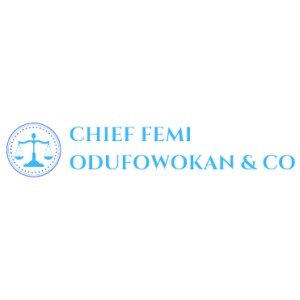About Bad Faith Insurance Law in Lagos, Nigeria
Bad Faith Insurance refers to situations where insurance companies act unreasonably or dishonestly towards policyholders. In Lagos, Nigeria, Bad Faith Insurance falls under the purview of the Nigerian Insurance Act of 2003. This law ensures that insurance companies operate fairly and in good faith, and provides guidelines for policyholders to seek legal remedies if they believe their insurance company has acted in bad faith.
Why You May Need a Lawyer
There are several situations where you may need a lawyer to assist you with Bad Faith Insurance in Lagos, Nigeria:
- If your insurance claim has been wrongfully denied without a valid reason
- If you believe your insurance company has delayed the processing of your claim without justification
- If your insurance company has offered a settlement that is far less than what is fair and reasonable
- If you suspect your insurance company has misrepresented policy terms and conditions
- If your insurance company has failed to communicate important information regarding your policy or claim
Local Laws Overview
The Nigerian Insurance Act of 2003 establishes the legal framework for insurance practices in Lagos, Nigeria. Key aspects related to Bad Faith Insurance include:
- All insurance contracts must be based on utmost good faith, meaning both the insurer and the insured must act honestly and in good faith towards each other.
- If an insurer acts in bad faith by unreasonably denying a claim or delaying claim settlement, the insured can seek remedies such as damages, interest payment, or even cancellation of the insurance contract.
- An insured person must give notice of a claim to the insurer as soon as reasonably possible, and the insurer must acknowledge receipt of the notice within ten working days.
- If any dispute arises between the insurer and the insured, it can be referred to arbitration based on the terms and conditions of the policy.
Frequently Asked Questions
1. What should I do if my insurance claim is wrongfully denied?
If your insurance claim is wrongfully denied, you should gather all relevant documentation and evidence, such as your policy documents and communication with the insurer. Consult with a lawyer experienced in Bad Faith Insurance to assess the situation and determine the best course of action, which may include filing a complaint or legal action.
2. Can I sue my insurance company for acting in bad faith?
Yes, if you believe your insurance company has acted in bad faith, you have the right to sue them. Consult with a lawyer who specializes in Bad Faith Insurance cases to understand the legal options available to you and to navigate the legal process effectively.
3. How can I prove that my insurance company acted in bad faith?
Proving bad faith insurance can be complex. Your lawyer will help you gather evidence such as correspondence, claim documents, and any other relevant information that demonstrate the insurer's unreasonable actions, breach of duty, or intentional misconduct.
4. What remedies am I entitled to if my insurance company acted in bad faith?
If your insurance company acted in bad faith, you may be entitled to remedies such as financial compensation, interest payments, recovery of attorney fees, and even cancellation of the insurance contract. The specific remedies will depend on your individual case and the evidence presented.
5. How long do I have to file a legal claim against my insurance company?
The timeframe to file a legal claim against your insurance company varies depending on the circumstances and the applicable laws. It is crucial to consult with a lawyer as soon as possible to understand the relevant time limitations and ensure your rights are protected.
Additional Resources
For further assistance and information regarding Bad Faith Insurance in Lagos, Nigeria, consider reaching out to the following resources:
- Lagos State Consumer Protection Agency: Their website provides information on consumer rights and assistance in resolving disputes with insurance companies.
- Nigeria Insurers Association: An industry body that can provide guidance and information on insurance practices and policies in Lagos, Nigeria.
- Legal Aid Council of Nigeria: A governmental organization that offers free legal services to individuals who cannot afford private legal representation.
Next Steps
If you believe you may have a Bad Faith Insurance case or need legal assistance, follow these steps:
- Gather all relevant documents, including your insurance policy, claim documents, and communication with the insurance company.
- Research and consult with lawyers specializing in Bad Faith Insurance to evaluate your case and understand your legal options.
- Engage a lawyer who has experience handling Bad Faith Insurance cases to represent you and guide you through the legal process.
- Provide your lawyer with all the necessary evidence and information to build a strong case on your behalf.
- Follow your lawyer's advice and guidance throughout the legal proceedings to ensure the best possible outcome for your case.
Lawzana helps you find the best lawyers and law firms in Lagos through a curated and pre-screened list of qualified legal professionals. Our platform offers rankings and detailed profiles of attorneys and law firms, allowing you to compare based on practice areas, including Bad Faith Insurance, experience, and client feedback.
Each profile includes a description of the firm's areas of practice, client reviews, team members and partners, year of establishment, spoken languages, office locations, contact information, social media presence, and any published articles or resources. Most firms on our platform speak English and are experienced in both local and international legal matters.
Get a quote from top-rated law firms in Lagos, Nigeria — quickly, securely, and without unnecessary hassle.
Disclaimer:
The information provided on this page is for general informational purposes only and does not constitute legal advice. While we strive to ensure the accuracy and relevance of the content, legal information may change over time, and interpretations of the law can vary. You should always consult with a qualified legal professional for advice specific to your situation.
We disclaim all liability for actions taken or not taken based on the content of this page. If you believe any information is incorrect or outdated, please contact us, and we will review and update it where appropriate.











